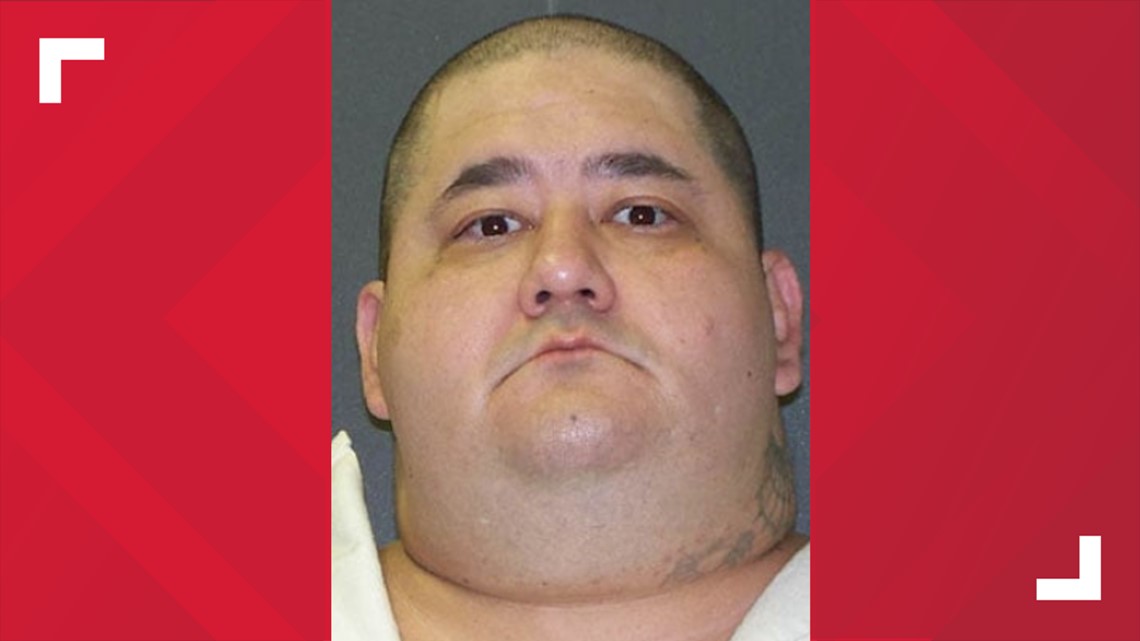Gonzalez appeared in the 358th District Court on Thursday for a hearing on whether he has an intellectual disability.
ODESSA, Texas — Michael “Spider” Gonzalez returned to an Odessa courtroom Thursday for an evidentiary hearing in his 1994 murder case. Gonzalez was convicted and sentenced to death in 1995 for the murders of Odessa residents Manuel and Merced Aguirre.
Gonzalez was scheduled to be executed in 2022 but was granted a stay of execution.
RELATED: Michael “Spider” Gonzalez scheduled for execution in 2022
Co-defense attorney Richard Burr told NewsWest 9 this all stems from Gonzalez’s execution and the question is whether he meets the criteria to receive the death penalty.
“In 2022, the Court of Criminal Appeals remanded the case back to Judge Shrode to consider two issues,” Barr said. “First, [an] Because if a person is found to have an intellectual disability, as determined by the Supreme Court ruling, they will no longer be sentenced to death or executed.”
Because Thursday’s evidentiary hearing was on the issue of whether Gonzalez was intellectually disabled, the state and defense were able to agree on one point.
“[…] “Our experts, his, their experts, both experts, our experts and Gonzalez’s experts, agreed that he has a mild intellectual disability,” State’s Attorney Travis Bragg said.
“Generally, when there’s an issue of intellectual disability, the state’s experts and the defense experts tend to disagree, and the defense experts say the defendant is intellectually disabled, the state’s experts say he’s not,” Barr said. “In this case, which is very rare, the state’s experts agreed, the state’s experts agreed that the defendant is intellectually disabled.” [an] Because he is mentally disabled, there is no dispute between the state and the defense on that issue.”
As a result, 12 pieces of new evidence, including expert reports, have been made public.
The defense has two expert reports, one by University of Houston professor Dr. Jack Fletcher, an internationally recognized expert on human development issues.
Another expert is Professor Adriana Strutt of Baylor College of Medicine, who administered Gonzalez’s intelligence test.
The state’s expert report was written by a physician named Dr. Timothy Proctor.
“He’s been doing this work for decades, typically serving as the state’s expert and generally agreeing with the state’s position on this issue – that the defendant does not have an intellectual disability – but he did not do so in this case,” Barr said of Dr. Proctor. “He thoroughly evaluated Mr. Gonzalez and, after speaking with numerous other witnesses, he determined that he agreed with the defense’s expert.”
Also being introduced into evidence will be nine sworn statements from people who had meaningful relationships with Gonzalez growing up, including teachers and relatives.
“These are people who knew him, observed him and had a lot of experience with him in things that most kids can’t do,” the defense said.
And even if Gonzalez’s death sentence is overturned, his life will not be cut short; it will likely be spent the rest of his life in prison.
At this time, there is no set date for Gonzalez to return to court following an evaluation of the evidence.
RELATED: Court of Criminal Appeals grants stay of execution for Michael “Spider” Gonzalez

